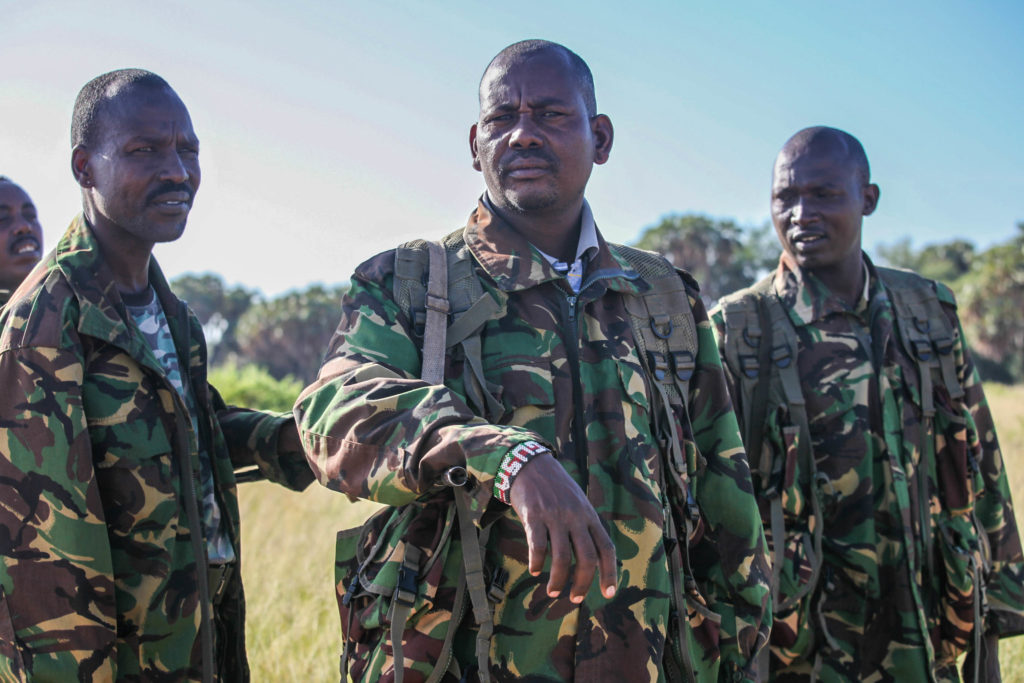“The pressure is continuous, there is no rest! Our minds never rest. Death can come anytime.” This quote describes the hard work of carrying out an increasingly dangerous occupation. Many people wouldn’t guess that words are that of a wildlife ranger. The statistics are out there, showing just how dire the dangers are that some rangers in African countries face every day. In 2016, 82% of African rangers declared that they have faced a life-threatening situation whilst on patrol.
The Thin Green Line Foundation, a Melbourne-based organization dedicated to supporting and helping rangers, has been compiling data on ranger deaths on the job for the last 10 years. A massive 50% – 70% of the recorded deaths were due to conflict with poachers!
Poachers are not the only danger that a ranger will face. They may also withstand difficult working conditions, being isolated from their families, relying on poor equipment and being given little to no training. In exchange, they typically receive meager salaries and very little respect.

Rangers in Kenya’s Samburu National Reserve. Image credit Ninara, CC BY-SA 2.0.
In many countries, rangers are being executed with military precision high-performance weapons, others are being kidnapped and tortured, others are traumatized and permanently disabled by gun wounds. Amidst the gun shots, they witness NGOs parading on TV with government officials, donating huge sums to wildlife conservation parks, or supposedly for the protection of rangers. They are faced with AK-47s in the bush and then asked to return to work before their healing time ends, because there are no resources available to support them!
The re-emergence of the illegal trade in ivory and rhino horn, as well as other protected animals, has exacerbated the dangerous threats that rangers face on a daily basis. The staggeringly high amounts of money that illegal trade offers has encouraged organized criminal networks to join in, resulting in well-funded and well-armed poaching syndicates. These syndicates are becoming more aggressive and well-trained by the day. As a response, many conservation groups have embraced the concept of paramilitary-style training.
More than 80% of the work a ranger does nowadays in areas where poaching syndicates operate is combat operations against poaching. Many countries are not able to financially support the training necessary for the combat operations and daily responsibilities. It leaves the rangers unprepared for what is required of them in the field. With an old weapon being sent on patrol, they are left to face threats to their own life and the moral responsibility of having to kill somebody in order to protect wildlife and themselves.

Anton Said, a government ranger Government Ranger in Chipanje Chetu, Mozambique. Image credit USAID Biodiversity & Forestry, CC BY-SA 2.0.
Support for rangers has not kept pace with the escalating violence of the role. As one ranger states, “Poachers operate in small groups usually of 4-5 people, they have very good communication systems, satellite phones, weapons. They organize themselves very well, and they are skilled at killing more than just animals. Some of the raids are just revenge, bloody revenge. And they have the resources, many resources that we do not have. Still makes me wonder, where did all the money [put towards conservation]end up?”
The cost of protecting wildlife can be clearly seen among the spent bullet shells and freshly dug graves. Poaching is becoming militarized, and rangers are having to head into the bush to face hardened soldiers. A record number of rangers being killed in the past years, many in revenge-driven ambushes.
Many rangers are completely and utterly under-equipped. They feel that they do not have the proper equipment to face their daily jobs, they lack the basics. This quote from a ranger shows their frustrations with a lack of support: “Where are our weapons? How can we fight back? We need help in fulfilling our duty! Rangers are not supported adequately with equipment, training and facilities. A cat cannot compete with a tiger, although they are from the same family. We need better weapons in order to fulfill our jobs and protect both ourselves and the animals we are serving.”
Featured image: Uganda Wildlife Authority (UWA) Rangers listens intensely during a Counter Illicit Trafficking Junior Leadership Course graduation at Queen Elizabeth Park, Uganda. Image credit USAFRICOM, CC BY-SA 2.0.





